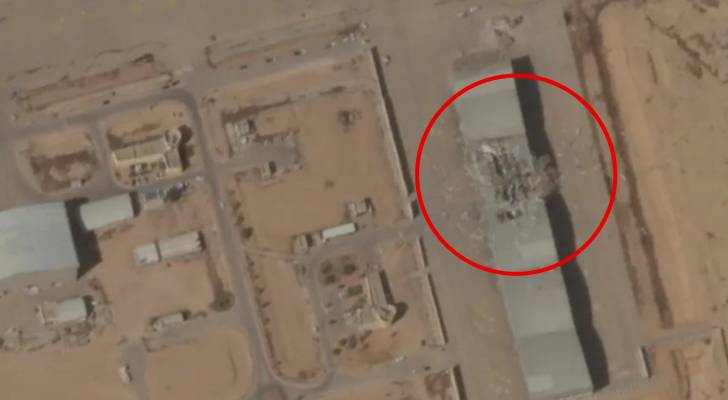Satellite images taken after a significant missile attack by Iran reveal extensive damage at a crucial Israeli military air base. The images show a large hole in the roof of an aircraft hangar at the Nevatim air base in southern Israel. This facility is notable for housing the Israeli Air Force’s most advanced aircraft, including US-made F-35 Lightning II stealth fighter jets.
On Wednesday, the satellite images depicted the hangar’s damaged roof, situated near a runway. Debris littered the area, indicating the severity of the impact. However, the exact cause of the damage remains unclear. Israel’s military did not immediately respond to requests for comment regarding the satellite imagery. Importantly, military censorship cleared these images for publication, allowing for greater scrutiny of the situation.
The Nevatim air base is a strategic asset for the Israeli military. It serves as a hub for operations involving advanced aircraft, including the F-35s, which are vital for Israel’s air defense capabilities. These jets play a significant role in Israel’s ongoing efforts to maintain air superiority in the region.
In a statement on Wednesday, the Israeli military confirmed that several of its air bases were targeted during the Iranian missile assault. However, officials characterized the damage as “ineffective.” This designation suggests that the missile strikes did not disrupt the continuous operations of the Israeli Air Force, which remains on high alert amid escalating tensions in the region.
Read: Israel Bars UN Chief for Not Condemning Iran’s Strike on Israeli Territory
No Critical Assets Harmed
Despite the damage to office buildings and maintenance areas at the bases, the military reported that no critical assets were harmed. Importantly, there was no damage to fighter jets, drones, or munitions, ensuring that operational readiness remains intact. This assertion is crucial for maintaining Israel’s military posture in the face of ongoing threats.
As tensions rise in the region, the attack highlights the volatile security environment surrounding Israel. Iran’s missile barrage underscores the potential for escalation in hostilities. In recent months, the Israeli military has ramped up its operational tempo in response to threats posed by Iranian forces and their proxies in the region.
Military analysts note that while the Iranian attack may have caused physical damage, Israel’s ability to maintain operational capacity is a testament to its robust air defense systems and military preparedness. The situation at Nevatim reflects a broader strategy employed by the Israeli military to ensure resilience against potential threats.
In the wake of the missile attacks, the Israeli government faces increasing pressure to respond decisively. Security officials are likely to evaluate their options carefully, weighing the risks of escalation against the need to demonstrate military strength.
Overall, the damage at Nevatim air base serves as a stark reminder of the ongoing conflict in the region. The incident highlights the challenges Israel faces in safeguarding its airspace and military assets from adversarial actions. As the situation develops, further assessments of the damage and operational readiness will be critical for Israeli defense strategies moving forward.
Follow us on Google News, Instagram, YouTube, Facebook,Whats App, and TikTok for latest updates
